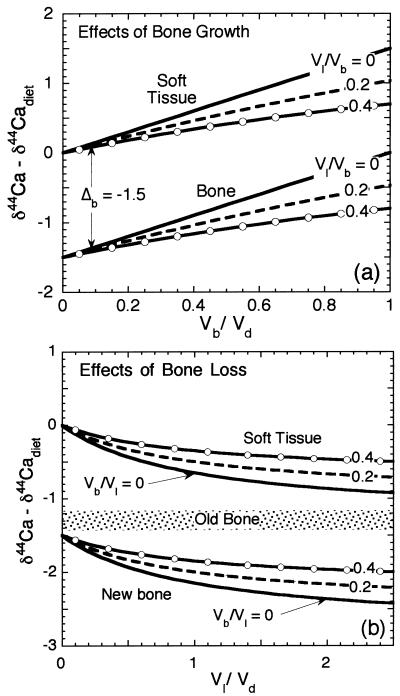Figure 3.
(a) Model-predicted relationship between the δ44Ca values of soft and bone tissue and that of the dietary calcium source for Δb = −1.5. When the proportion of dietary calcium fixed in bone is small (Vb/Vd ≪ 1), the steady state δ44Ca of newly forming bone is lower than that of diet by approximately the absolute value of Δb, and the soft tissue has δ44Ca about equal to that of the dietary source. If calcium use is higher, then both the soft tissue and bone have higher δ44Ca. Also shown are different values of the ratio of bone loss to bone growth (Vl/Vb), which was calculated assuming that the existing bone has a δ44Ca 1.3‰ lower than that of dietary calcium. If Vl ≈ Vb (pure remodeling with no net bone growth or loss), then the δ44Ca value of soft tissue is fixed at the dietary value. (b) Effect of bone loss in mature organisms on δ44Ca of soft tissue. If the calcium derived from bone is a significant fraction of dietary calcium intake, the soft tissue takes on values of δ44Ca that are substantially lower than those of the dietary calcium. If the dietary calcium flux is zero, then all of the soft tissue calcium will be derived from bone, and the soft tissue δ44Ca will be equal to that of the existing bone material. Bone formed during periods of net bone loss should have very low δ44Ca.

